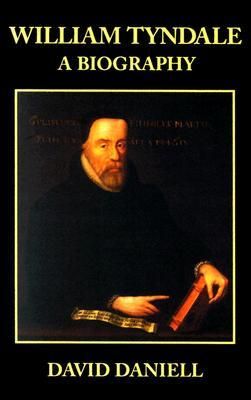About 15 years ago, I began reading this book, and I filled its pages with post-it notes because I found it so interesting. My days were focused on homeschool and babies, and I couldn’t finish it before it was due at the library. Defeated, I pulled the post-it notes from the pages so I could return it, and I made a promise that I would pick it up again when I had more time to devote to such a scholarly work. Well, I remembered my promise and finished it.
There are other books that might tell the story of William Tyndale in a simpler way. This was academic, sometimes over-detailed, and occasionally beyond my understanding.
William Tyndale is one of my heroes. He was the first person to translate the Bible into readable, understandable English from the original Greek and Hebrew. He was condemned as a heretic and killed before he could finish his translation of the Old Testament. Thankfully, his New Testament and Pentateuch were used in the King James Version of the Bible after his martyrdom.
I liked the author’s focus on Tyndale’s value as a translator, comparing many more muddled translations to Tyndale’s direct, clear sentences. Tyndale contributed a lot to the English language, its cadence, sentence structure, and vocabulary. Beautifully and heroically, Tyndale made the Bible understandable, and its sentences memorable. He created important words and phrases such as scapegoat, Jehovah, and living water.
Take a look at the Bible, and you will see that most sentences are constructed with monosyllables, with multisyllable words at the end of the sentences for emphasis. This is Tyndale’s voice. His words sing in our minds. These are his words, and the King James Version follows them very closely.
And after the fire, came a small, still voice.
Why halt ye between two opinions?
Blessed are the pure in heart, for they shall see God.
So the last shall be first, and the first shall be last. For many are called, and few be chosen.
And Jacob served seven years for Rahel, and they seemed unto him but a few days, for the love he had to her.
Tush, ye shall not die.
He believed the Bible should be read by anyone, and the gospel defined by the whole book, not isolated phrases, or worse, commentaries. As he worked over many years on the New and Old Testaments, he came to understand the gospel in terms of a covenant relationship with God, requiring faith and action. He learned for himself the value of the word of God, taken in its entirety, to understand what God expects of us.
What he did took great skill. He knew 8 languages. What he did took great courage. He lived in hiding in a foreign land for years. You may have heard his quote to a learned man,
If God spare my life, ere many years I will cause a boy that driveth the plough shall know more of the Scripture than thou dost.
Moving beyond the book, I think about Tyndale’s influence on the plowboy, Joseph Smith, who translated the Book of Mormon. Joseph didn’t have an Oxford education like Tyndale. He had no experience in ancient languages, but with the inspiration of God and a mind full of Biblical phrases (influenced by Tyndale), he translated the Book of Mormon in a very short period of time. As for the words from James 1:5-6 that inspired Joseph the plowboy to go the woods to pray, many are Tyndale’s.
